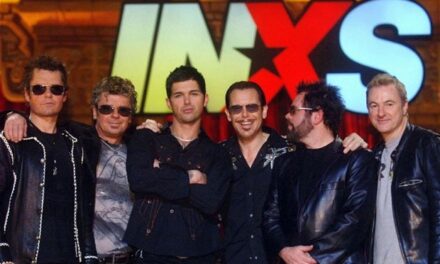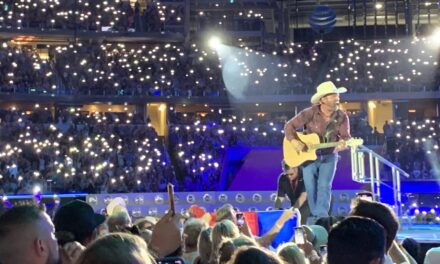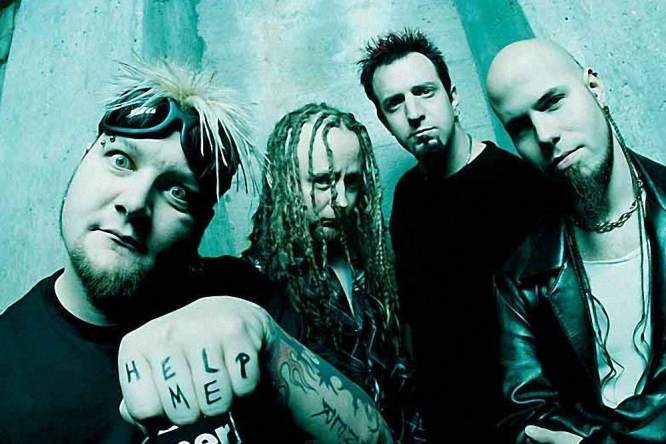

Text:
For once, music is not on Moby’s mind. The topic at hand: food.
“My ex-girlfriend and I just opened a little restaurant called Teany,” he says from his home in New York. “It’s really small; that’s why we called it that. It’s a vegetarian restaurant for people who don’t like vegetarian food. It’s not like a rigid, strict place with seaweed and brown rice. My favorite sandwich is the Pan Bagnia, which comes on thick, crusty Italian bread and onions and basil. It’s really good.”
Moby talking about his favorite sandwich is not something that longtime observers of the artist can easily process. After all, for years, Moby’s life was shrouded in secrecy. A well-known recluse, vegan and Christian, the New Yorker stuck to his music and dark clubs, crafting electronic, confrontational howls – especially on 1996’s powerful Animal Rights – that he performed live, extremely aggressively, often ending his shows by destroying his equipment.
But that was the Moby of yesterday – a quiet, jittery outcast who often had difficulty explaining his music in interviews. The Moby of today, age 37, friendly and open, has changed in many ways – though in a sense, he believes he’s come full circle.
“In a weird way, I’m in the very same place I was back then,” he says. “I live in the same building. I eat in the same restaurants. Only difference is, I’ve sold a lot more records.
“As an artist, where am I? Back then, I was more confrontational with my work,” he says. “After Animal Rights, I wanted to make records people could fall in love with, instead of confronting them. It’s not about reaching more people, just making records that are warmer and more compassionate and that they can use as a soundtrack to their daily lives. I love Animal Rights, but it’s a very aggressive and difficult record, and, at this point, I now have the desire to reach people on a more compassionate level.”
For the past three years, Moby has been doing that quite well. His 1999 effort, Play, has sold more than 9 million copies, making him the first electronic-music artist to cross over into pop-music territory. Sales of his latest disc, 18, have been brisk as well, proving Play was no one-hit wonder.
The massive popularity does, of course, have its drawbacks.
“That’s the funny thing, when people come up to me and say, ‘Oh, I love both your records,’ ” he says with a laugh. “It’s fine, but sometimes people are very surprised to find out that this isn’t the first thing I’ve done, that I’ve been putting out records for years.”
While those early records ran the gamut of styles – from the noisy aggression of Animal Rights to the Brian Eno-influenced stillness of 1993’s Ambient to his genre-surfing, self-titled 1992 debut – Play and 18 follow similar sonic paths. Moby mingles club beats with pop arrangements and – via ethereal female vocals from the likes of MC Lyte, Sinead O’Connor and more obscure artists – colors them in shades of his latest loves: blues and gospel. Some of 18’s most beautiful moments are the ones driven by these influences, such as Rafters, In My Heart and the deliciously forlorn At Least We Tried.
“Those are genres of music I’ve been familiar with since I was young,” he says. “My mom was into passionate, beautiful vocal performances. Blues and gospel singers tend to be remarkable. It just seemed natural for me to pick up on it.”
It was not a direction one could have easily forecast. Born Richard Melville Hall in Darien, Conn., Moby – his nickname is derived from the fact that his great-great-granduncle is Moby Dick author Herman Melville – started out playing in hardcore punk bands.
After a move to New York, Moby turned his interests toward dance music and began working the nightclub scene as a DJ. Soon, he began releasing singles for fledgling independent label Instinct, catching the ear of New York execs.
In 1991, Moby was tapped to score the theme to David Lynch’s TV series Twin Peaks. Thus started a ball rolling that resulted in Moby remixing the work of several prominent artists, including Michael Jackson, Erasure, Pet Shop Boys and Orbital, heightening his own solo career as well.
All these years and millions of sold records and hit singles and videos later, Moby says what makes him proudest is not necessarily the work he’s done, but the mark he’s made.
“The thing I like most about my job is when I meet people who share anecdotes about times in their lives when my music has been important to them,” he says. “Nothing could make me happier.”
Originally published July 14, 2002










